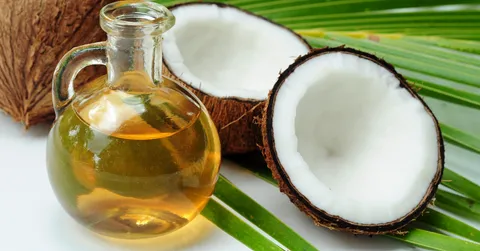Dealing with a dog’s dry, itchy skin can be a frustrating experience, both for the pet and the owner. While topical treatments can offer temporary relief, addressing the root cause often lies within the dog’s diet. This is where dietary supplements for dry, itchy skin in dogs play a crucial role. These supplements can help alleviate common skin issues like hot spots, lesions, and infections by providing essential nutrients and anti-inflammatory properties.
But with so many options available, how do you choose the right supplement? This guide will delve into the most effective dog supplements for dry skin, backed by scientific research and expert recommendations, to help you find the perfect solution for your furry companion. Understanding the right nutritional support can significantly improve your dog’s skin health and overall well-being.
Understanding Dry and Itchy Skin in Dogs
Dry and itchy skin in dogs, medically known as pruritus, is a common ailment that can stem from various underlying causes. These include environmental allergies (to pollen, dust mites), food allergies, flea infestations, bacterial or yeast infections, and even underlying medical conditions. When a dog’s skin becomes inflamed, it leads to discomfort, leading to excessive scratching, licking, and chewing. This constant irritation can further damage the skin, creating a vicious cycle that can result in hot spots, skin lesions, and secondary infections.
The skin acts as a barrier, protecting the body from external pathogens. A compromised skin barrier, often due to dryness and inflammation, makes a dog more susceptible to these issues. Therefore, supporting the skin’s natural barrier function and reducing inflammation are key to managing dry and itchy skin. Nutritional supplements can play a vital role in this by providing essential fatty acids, vitamins, minerals, and other beneficial compounds that promote skin health from the inside out.
Top Supplements for Dog Dry Skin
Several natural ingredients have proven effective in combating dry and itchy skin in dogs. These supplements work by targeting inflammation, supporting the skin barrier, and promoting a healthy immune response.
1. Coconut Oil
Coconut oil is a powerhouse of medium-chain triglycerides (MCTs), a type of fatty acid with potent antiviral, antibacterial, antimicrobial, and anti-inflammatory properties. These characteristics make it an excellent supplement for dogs with itchy skin. MCTs can help reduce inflammation associated with various skin irritations, such as dermatitis and pruritus. Furthermore, their antimicrobial and antifungal properties can combat the growth of yeast and fungi, which often exacerbate skin issues. Coconut oil is naturally low in omega-3 and omega-6 fatty acids, making it an ideal complement to other supplements that are rich in these essential fats, such as fish oil and sunflower oil.
 A dog enjoying a spoonful of coconut oil
A dog enjoying a spoonful of coconut oil
2. Colostrum
Colostrum, the first milk produced by mammals after birth, is exceptionally rich in nutrients, antibodies, proteins, fats, vitamins, and minerals. It plays a critical role in developing a strong and healthy immune system in newborns. However, its benefits extend to adult dogs as well. Colostrum’s immunity-boosting properties can help adult dogs by making them less prone to overreacting to common allergens like pollen, fleas, or certain foods. By strengthening the immune system, colostrum can help resolve underlying allergies that contribute to dry, itchy skin, thereby reducing the need for constant scratching.
3. Fish Oil
Fish oil is renowned for its high concentration of omega-3 fatty acids, particularly DHA and EPA, which are highly beneficial for a dog’s overall health, including the condition of their skin and coat. These essential fatty acids are potent anti-inflammatories, making them incredibly effective at soothing dry, itchy, and flaky skin. A 1994 study published in the Journal of Veterinary Dermatology investigated the impact of a high-dose EPA marine-oil based supplement on dogs suffering from chronic itching, skin allergies, and flea allergies. The results showed a “significant improvement” in itchiness, self-trauma, and coat quality among the dogs that received the supplement after six weeks. This underscores the efficacy of fish oil as a primary solution for canine skin discomfort.
 A dog with a healthy, shiny coat
A dog with a healthy, shiny coat
4. Flaxseed Oil
Flaxseed oil offers a good source of both omega-3 (alpha-linolenic acid or ALA) and omega-6 fatty acids, which can help alleviate dry and itchy skin in dogs. Similar to fish oil and sunflower oil, flaxseed oil contributes to healthier skin. Research from 2001 indicated that a month-long supplementation of either flaxseed oil or sunflower oil led to temporary improvements in skin and hair quality in normal dogs. Furthermore, a 2017 study found that increasing dietary ALA levels in dogs with atopic dermatitis helped improve their symptoms. However, it’s important to note that the ALA in flaxseed oil must be converted into EPA and DHA within the dog’s body to effectively combat skin irritation. This conversion process means flaxseed oil might not be as potent as fish oil on its own. Nevertheless, when combined with other oils rich in EPA and DHA, flaxseed oil can significantly enhance its skin-benefiting effects.
5. Probiotics
Probiotics are essential for maintaining a dog’s overall immunity, with a significant portion of their work occurring within the gut. A healthy digestive system is intrinsically linked to healthy skin. A dog with a robust digestive system is less likely to develop food allergies, a common trigger for various skin conditions. Dr. Teresa Manucy, DVM, noted in an article on PetMD.com that a potential benefit of probiotics for dogs is their ability to “reduce allergic reactions by decreasing intestinal permeability and controlling inflammation.” This means that by supporting gut health, probiotics can indirectly help reduce inflammatory responses that manifest as skin issues. Therefore, probiotics are not only beneficial for digestion but also serve as an excellent supplement for improving a dog’s skin health and reducing itchiness.
 A close-up of a dog's healthy skin
A close-up of a dog's healthy skin
6. Sunflower Oil
Sunflower oil is a primary source of omega-6 fatty acids, particularly linoleic acid (LA). Omega-6 fatty acids play a critical role in maintaining the health of a dog’s skin. Linoleic acid is vital for the structure of skin cells and is necessary for preserving the epidermal barrier, which is crucial for retaining moisture and protecting the skin. Dogs cannot produce linoleic acid on their own, making dietary intake essential. A deficiency in LA can lead to dry, itchy skin. According to research highlighted by Nutro, a reduction in linoleic acid levels in dogs was directly correlated with an increase in itchiness. However, for optimal results in alleviating dry, itchy skin, sunflower oil should be combined with oils containing omega-6 arachidonic acid (ARA), which is found in animal fats, including salmon oil.
Combining Supplements for Enhanced Results
The most effective approach to treating dog dry skin often involves a multi-ingredient strategy. Each supplement has unique properties that target different aspects of skin health. By combining these beneficial ingredients, you can create a comprehensive approach that addresses inflammation, supports the skin barrier, and bolsters the immune system simultaneously.
Veterinary Formula Clinical Care’s Skin Health & Itch Relief chewable supplement is a prime example of a multi-ingredient solution. It incorporates five natural ingredients known for their skin-healing properties, offering a convenient once-a-day dosage. Many customers have reported significant improvements in their dogs’ scratching and chewing behaviors after using this product.
Additionally, the Veterinary Formula Clinical Care Complete Probiotic supplement contains fish oil and coconut oil, alongside a potent blend of probiotics. Using this product in conjunction with their Skin Health & Itch Relief chewables can provide a powerful, immunity-boosting treatment that contributes to both the internal health and external appearance of your dog.
When to Consult a Veterinarian
While these supplements can offer significant relief for dry and itchy skin in dogs, it’s crucial to remember that they are supportive therapies. If your dog’s skin condition is severe, persistent, or accompanied by other symptoms like lethargy, loss of appetite, or vomiting, it is essential to consult a veterinarian. A veterinarian can accurately diagnose the underlying cause of your dog’s skin issues and recommend the most appropriate treatment plan, which may include prescription medications, specialized diets, or a combination of therapies. They can also advise on the correct dosage and suitability of supplements for your individual dog’s needs.
Conclusion
Managing your dog’s dry, itchy skin can be a journey, but with the right nutritional support, you can help your canine companion find comfort and relief. From the anti-inflammatory power of fish oil and coconut oil to the immune-boosting benefits of colostrum and probiotics, a range of natural supplements can significantly improve skin health. By understanding the unique properties of each ingredient and considering a multi-faceted approach, you can effectively combat dryness and itchiness, leading to a happier, healthier dog with a vibrant coat and skin. Always remember to consult with your veterinarian to ensure the chosen supplements and strategies are the best fit for your dog’s specific health needs.
References
- Journal of Veterinary Dermatology – Efficacy of a marine oil-based supplement on canine pruritus, self-trauma, and coat quality
- PubMed – Flaxseed oil or sunflower oil supplementation in diet affects the fatty acid composition of plasma and skin lipids and the skin barrier function in dogs
- ResearchGate – Flax in dog food
- Veterinary Formula – Why Your Dog’s Gut Health Is Important
- PetMD – Probiotics for Dogs: What You Need to Know
- Nutro – The Importance of Linoleic Acid in Canine Skin Health
